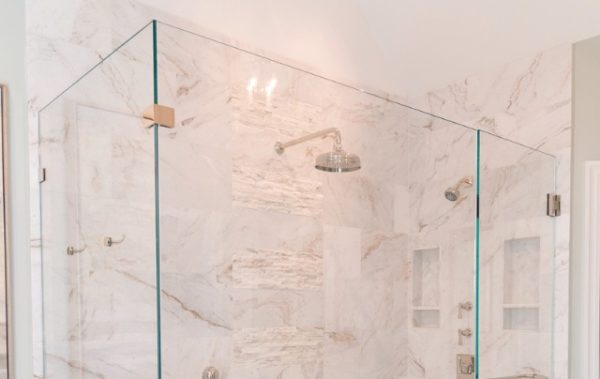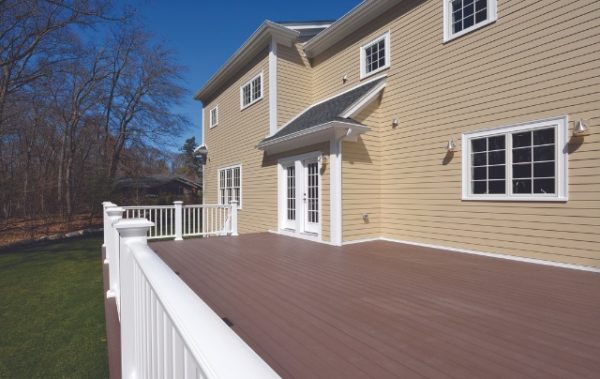Keep It Simple … But Smart. 7 Savvy Home Maintenance Tips
Categories: Uncategorized

Keeping a home in tip-top shape can seem like a daunting task especially when looking at the big picture. To keep your mind at ease, and your wallet in check, divide your maintenance needs into different sections of the house and develop a schedule that works best for you and your home.
 #1 Start From The Top
#1 Start From The TopIf you are buying a new home, make sure a roof inspection is included in your closing costs. Once you become a homeowner, it is a good idea to have your roof inspected every two to three years or after a large storm. Repairing small spots or individual shingles will be much more cost effective than waiting for a full roof replacement. Most roof inspections will also include cleaning debris, which helps to keep moisture out and prevents a rotting roof. Gutter cleaning is also key for protecting the home’s frame since stagnant water can lead to mold, pests, and other harmful issues.
#2 Clean Out The Clutter
Once the debris has been cleaned off your roof, now make sure it is also addressed on the inside of your home. There are a few ways you can cut down on the bulk waste that ends up at the end of your driveway. Take any unwanted clothing or furniture to Goodwill or arrange for a pick-up by a local charity like ReStore. Invest in a compost bin to keep in your backyard for any kitchen waste, which can be converted into garden soil.
#3 Seal The Deal
Heating and cooling the home can be expensive if your house is not properly insulated. Start with the windows of your home and make sure they are properly sealed. Consider updating based on the status of your current windows. If they are still functional, consider sealing them instead of replacing them. New windows are designed to better control the temperature inside the home and can help cut costs on the energy bill. Next, check the attic and crawl spaces for areas where air can be escaping and have them sealed properly. This will also help keep critters from living in your house rent-free.
home and make sure they are properly sealed. Consider updating based on the status of your current windows. If they are still functional, consider sealing them instead of replacing them. New windows are designed to better control the temperature inside the home and can help cut costs on the energy bill. Next, check the attic and crawl spaces for areas where air can be escaping and have them sealed properly. This will also help keep critters from living in your house rent-free.
 home and make sure they are properly sealed. Consider updating based on the status of your current windows. If they are still functional, consider sealing them instead of replacing them. New windows are designed to better control the temperature inside the home and can help cut costs on the energy bill. Next, check the attic and crawl spaces for areas where air can be escaping and have them sealed properly. This will also help keep critters from living in your house rent-free.
home and make sure they are properly sealed. Consider updating based on the status of your current windows. If they are still functional, consider sealing them instead of replacing them. New windows are designed to better control the temperature inside the home and can help cut costs on the energy bill. Next, check the attic and crawl spaces for areas where air can be escaping and have them sealed properly. This will also help keep critters from living in your house rent-free.#4 Love Your Landscape
Start by trimming back any overgrown trees and shrubs, so that the lawn will be easy to mow and manage.
#5 Safety First
Different home systems are set up to give you peace of mind, but that will only last as long as the systems do. Make sure to regularly check the batteries in your smoke detector, carbon monoxide monitors, and circuit protectors to ensure constant protection. You should also have your heating, ventilation, and air conditioner systems serviced about twice a year to prevent dust buildup, which can cause fires.
#6 Don’t Make a Splash
Once water damage has set in, it can be very expensive to repair. Ensure that all of your pipes have been tightened and checked especially if there is inclement weather in the forecast. A huge burst could seem like the worst of your problems, but a slow leak can lead to wood rot and mold. To save money on your water bill, you could also consider setting up a gray water system, which would reuse water from the shower and repurpose it to flush your toilet.
#7 The Not-So-Cuddly-Creatures
While the occasional Thumper in your yard is welcomed, most other rodents are not. Consider scheduling a fumigation service twice a year to prevent insects from breeding both inside and outside of the home. Also, check around your residence to make sure there aren’t any ponds with stagnant water as pools of water are a thriving breeding ground for mosquitoes.
Related Posts

Enjoy the Rites of Spring in Atlanta
April 15, 2011
No Comments

Meet The Best of 2021 Winners
November 24, 2021
No Comments

Custom-designed, hand-painted murals by Courtney Khail
March 1, 2023
No Comments
Popular
Recent
Popular

Award-Winning Kitchens, Baths, Interior Design and More
March 4, 2022

Atlanta’s NKBA Designs of Distinction 2019 Winners
October 30, 2019

100 Things to Know Before You Remodel
June 26, 2017
Recent

What’s the simplest way to upgrade your window treatments?
February 27, 2024


What does the warranty cover when it comes to a siding project?
February 27, 2024





